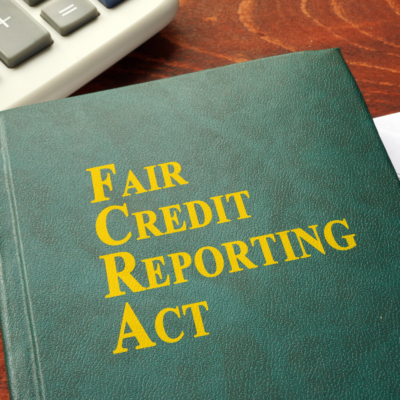The 2024 Guide to FCRA Adverse Action Requirements
Employer-run background checks must comply with all federal, state, and local laws. Key regulations govern when companies can conduct a background check, what level of detail they can pull, actions they can take based on results, and what to do with the information discovered. Most of these regulations are designed to prevent hiring discrimination and promote fairness, while others are simply to protect data privacy.
Failure to observe these regulations can result in serious fines and expensive legal action (often in the millions), outcomes which can be bucketed under the umbrella term of “compliance risk.”
If employers can manage background screening compliance risk efficiently and effectively, however, then they can unlock the complete power of a quality background screening program. It’s all about figuring out the maximum amount of screening data they can gather (to make informed hires) within the legal limits. Ultimately, it’s about hiring smarter.
One of the trickiest compliance guidelines to navigate comes from the Federal Trade Commission (FTC) via the Federal Fair Credit Reporting Act (FCRA). Called Adverse Action, the FTC provides guidelines for companies whenever they’re taking a negative action on a credit report or background check.
Below, discover the updated guidelines and regulations in the FCRA to figure out how to navigate background screening compliance and hire smarter in 2024.
What Is the FCRA?
Mandated by the FTC, the FCRA promotes the accuracy, fairness, and privacy of information in the files of consumer reporting agencies. The FCRA governs how consumer reporting agencies—and the institutions that use their data—handle and protect consumer data.
In the context of employment, the FCRA dictates how employers can use credit reports, criminal history reports, driving records, drug tests, and other relevant reports created by a professional background screening service, particularly when it comes to taking adverse action on a candidate based on the findings in those reports.
What Is Adverse Action?
Under the FCRA, “adverse action” refers to any negative action taken by an employer, lender, insurer, or other entity based on the information obtained through a consumer report or credit report. Adverse action can look like denying credit or increasing insurance premiums, but in the context of employment, it looks like denying a job application or terminating employment.
When an entity takes an adverse action based on a consumer report, they are required by the FCRA to take three crucial steps in order to stay compliant.
- Pre-Adverse Action Notice
If an employer decides to eliminate a candidate from the running based on information received in a CRA background check, they must provide the applicant with a pre-adverse action notice, a copy of the background check report, and a summary of their rights under the FCRA. - Reasonable Time to Dispute
After sending the pre-adverse action notice, the employer must give the candidate “a reasonable amount of time” (five business days) to dispute any of the information in the check before the employer can make a final employment decision. - Final Adverse Action Notice
After the pre-adverse action process, the employer can make a final decision. This final adverse action notice must include the name, phone number, and address of the CRA that completed the report, language around the fact that candidates have the right to dispute the accuracy of results and can obtain an additional free report within 60 days, and confirmation that the CRA did not make the employment decision.
Updates to Adverse Action In 2024
Employment laws and background check guidelines are constantly changing. In order to manage compliance risk, companies need to stay up to date on these changing requirements—like this update to FCRA adverse action processes in 2024.
In April 2023, the Consumer Financial Protection Bureau (CFPB) published an updated version of “A Summary of Your Rights Under the Fair Credit Reporting Act,” aka the document that employers must send out as part of a pre-adverse action notice.
This update replaces the official version published in October 2018 with rule corrections, Spanish and English versions, and updated contact information for critical Federal agencies associated with several regulations. In order to conduct compliant background checks, employers must provide applicants with this updated summary any time they give an applicant a pre-adverse action notice.
Employers have until March 20, 2024, to incorporate this new notice into their background check process. After that, they are liable for compliance violations.
Checklist: Conducting FCRA Compliant Background Checks and Adverse Action
Based on the tenets of the FCRA and the 2024 updates to adverse action from the CFPB, employers should take the following steps to drive compliance during pre-employment screening.
- Disclose that a background check is required upfront. Employers must give applicants a heads-up—in the form of a written notice—of their intent to complete a background check and their intent to use the information gathered to make employment decisions.
- Obtain consent to perform a background check. Once an applicant has received and reviewed the written notice, employers must obtain the candidate’s written, signed consent to complete the background check.
- Inform the Consumer Reporting Agency of the obtained consent. Employers must certify they’ve obtained written consent in compliance with FCRA guidelines and that they will not misuse any information received in the report.
- Provide applicants with pre-adverse action notice. If an employer decides to eliminate a candidate from the running based on information received in a CRA background check, they must provide the applicant with a pre-adverse action notice. Included in that notice should be a copy of the background check report, an updated copy of A Summary of Your Rights Under the Fair Credit Reporting Act (see above), and a disclosure of the amount of time (five business days) provided to dispute any of the information in the check before the employer can make a final employment decision.
- Allow the candidate at least five business days to dispute the information. Five days is the recommended amount of time to give a candidate before making a final employment decision.
- Evaluate disputes and make a final decision.
- Provide applicants with a final notice of adverse action. This notice must include the name, phone number, and address of the CRA that completed the report, disclosures about the candidates’ rights to dispute the results and get access to a free copy of the report within 60 days, and a statement that the CRA did not make the employment decision.
- Retain data and records appropriately. The FCRA has explicit guidelines about how and when data should be collected, stored, and disposed of for maximum security. Employers should ensure they retain records as required under State and Federal law and dispose of records so they can’t be read or reconstructed.
- Partner with a professional. Look for a professional background screening service backed by experts proficient in FCRA compliance to avoid the most common mistakes when it comes to background screening compliance.
Learn More With the Extended Compliance Guide
Check out our extended compliance guide to get more info on navigating legal requirements for background screening, or get in touch today to find out how S2Verify can help you improve hiring decisions and reduce risk (including compliance risk) in 2024.







